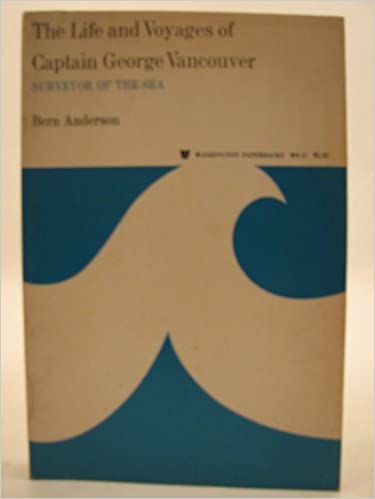-
California Stepping Stones A History For Young Californians
KSh200.00A history of California for elementary/middle school students, probably used as a textbook into the 1960’s.
-
How Fat Was Henry VIII?: And 101 Other Questions on Royal History
KSh500.00Most of us know that Queen Victoria ruled over a great Empire, that King John signed the Magna Carta, and that Harold was killed at the Battle of Hastings. But this book, for inquisitive visitors to the royal palaces and monarchy buffs everywhere, takes us to the heart of the matter, and tells us what we really want to know about life behind the palace walls: Which monarch had the most eccentricities? Which king invented the handkerchief? Which queen pretended to be invisible? Which king was afraid of witches? Did King Canute harness the waves? Why did Charles II hide in an oak tree? Which king pawned his crown? Did monarchs use contraception? Who was Britain’s first royal motorist? Did Mary Queen of Scots murder her husband?
-
-
The Disneyland Encyclopedia
KSh800.00The Disneyland® Encyclopedia: The Unofficial, Unauthorized, and Unprecedented History of Every Land, Attraction, Restaurant, Shop, and Event in the Original Magic Kingdom®
-
A Weekend in September
KSh300.00The hurricane that swept Galveston Island early in September, 1900, occupies a unique place in the reckoning of events of the Texas Gulf coast. Nearly a century after its passing, the storm remains the standard against which the ferocity and destructiveness of all others are measured. Twothirds of Galveston’s buildings were washed away at a cost that was never fully calculated. More than 6,000 people were killed. And in the collective memory of a region where depredations by wind and water are accepted as part of life, the weekend of September 8, 1900, is the ultimate example of the terror and violence a hurricane can bring.
John Edward Weems’s account of the Galveston hurricane was written more than six decades ago, when many of the survivors were still living and available for interviews. This book is based on numerous conversations and correspondence with these survivors as well as a careful examination of contemporary documents and news reports. In direct, economical prose Weems recreates that fateful weekend as experienced by those who actually were there. The result is a narrative that develops a pace and force as irresistible as the hurricane that inspired it, and a work that is a model of historical reportage.
KSh600.00 -
The Life and Voyages of Captain George Vancouver
KSh600.00The Life and Voyages of Captain George Vancouver
-
Nights of Rage: On the Recent Revolts in France
KSh300.00When will the angry horde of nihilist children not be a contemporary question to consider? This problem for society can be seen as indicative of social antagonisms generally or at least lays bare a rift carefully tended and kept from exploding by the managerial staff of the existent. This classic text presents an analyzes the French banlieue (suburban ghettos in France) riots of 2005 and a summary of these events, within which the degree of intensity was calculated for each particular day by how many thousands of cars were set alite in a ring surrounding Paris at any given time. May rings of fire surround every city!
-
The Book of Merlin: Insights from the Merlin Conference
KSh500.00The Book of Merlin: Insights from the Merlin Conference
-
The Land Looks After Us: A History of Native American Religion
KSh700.00Native Americans practice some of America’s most spiritually profound, historically resilient, and ethically demanding religions. Joel Martin draws his narrative from folk stories, rituals, and even landscapes to trace the development of Native American religion from ancient burial mounds, through interactions with European conquerors and missionaries, and on to the modern-day rebirth of ancient rites and beliefs. The book depicts the major cornerstones of American Indian history and religion–the vast movements for pan-Indian renewal, the formation of the Native American Church in 1919, the passage of the Native American Graves and Repatriation Act of 1990, and key political actions involving sacred sites in the 1980s and ’90s. Martin explores the close links between religion and Native American culture and history. Legendary chiefs like Osceola and Tecumseh led their tribes in resistance movements against the European invaders, inspired by prophets like the Shawnee Tenskwatawa and the Mohawk Coocoochee. Catharine Brown, herself a convert, founded a school for Cherokee women and converted dozens of her people to Christianity. Their stories, along with those of dozens of other men and women–from noblewarriors to celebrated authors–are masterfully woven into this vivid, wide-ranging survey of Native American history and religion.
-
The World According to Baxter Black: Quips, Quirks and Quotes
KSh400.00The World According to Baxter Black: Quips, Quirks and Quotes
-
-
Darwin’s Ghost: The Origin of Species Updated
KSh700.00Charles Darwin’s The Origin of Species is probably the best-known, least-read book. One of the most important achievements of the past millennium, it did for biology what Galileo did for astronomy: made it into a single science rather than a collection of unrelated facts. Important though Origin remains, its examples and intricate Victorian prose are now a century and a half old. They are ripe for renewal and reaffirmation. Writing as “Darwin’s ghost,” eminent geneticist Steve Jones updates this seminal work—and restates evolution’s case for the 21st century.
Jones is a writer of engaging wit and dazzling erudition and has been called “the British Carl Sagan.” Using modern examples—the AIDS virus, the puzzles of sexual selection, the physiology and psychology of pets, and the unparalleled genetic success of our own species—he shows the power and immediacy of Darwin’s great argument and makes us appreciate how it makes life make sense. Eye-opening and entertaining, filled with astonishing facts, amusing anecdotes, and the very latest research, Darwin’s Ghost is contemporary science writing at its very best
-
Lessons In Disaster
KSh800.00A revelatory look at the decisions that led to the U.S. involvement in Vietnam, drawing on the insights and reassessments of one of the war’s architects
“I had a part in a great failure. I made mistakes of perception, recommendation and execution. If I have learned anything I should share it.”
These are not words that Americans ever expected to hear from McGeorge Bundy, the national security adviser to Presidents John F. Kennedy and Lyndon B. Johnson. But in the last years of his life, Bundy—the only principal architect of Vietnam strategy to have maintained his public silence—decided to revisit the decisions that had led to war and to look anew at the role he played. He enlisted the collaboration of the political scientist Gordon M. Goldstein, and together they explored what happened and what might have been. With Bundy’s death in 1996, that manuscript could not be completed, but Goldstein has built on their collaboration in an original and provocative work of presidential history that distills the essential lessons of America’s involvement in Vietnam.
Drawing on Goldstein’s prodigious research as well as the interviews and analysis he conducted with Bundy, Lessons in Disaster is a historical tour de force on the uses and misuses of American power. And in our own era, in the wake of presidential decisions that propelled the United States into another war under dubious pretexts, these lessons offer instructive guidance that we must heed if we are not to repeat the mistakes of the past.
-
The Political Mind: Why You Can’t Understand 21st-Century American Politics with an 18th-Century Brain
KSh800.00In What’s the Matter with Kansas?, Thomas Frank pointed out that a great number of Americans actually vote against their own interests. In The Political Mind, George Lakoff explains why. As it turns out, human beings are not the rational creatures we’ve so long imagined ourselves to be. Ideas, morals, and values do not exist somewhere outside the body, ready to be examined and put to use. Instead, they exist quite literally inside the brain and they take physical shape there. For example, we form particular kinds of narratives in our minds just like we form specific muscle memories such as typing or dancing, and then we fit new information into those narratives. Getting that information out of one narrative type and into another or building a whole new narrative altogether can be as hard as learning to play the banjo. Changing your mind isn’t like changing your body it’s the same thing. But as long as progressive politicians and activists persist in believing that people use an objective system of reasoning to decide on their politics, the Democrats will continue to lose elections. They must wrest control of the terms of the debate from their opponents rather than accepting their frame and trying to argue within it. This passionate, erudite, and groundbreaking book will appeal to readers of Steven Pinker and Thomas Frank. It is a fascinating read for anyone interested in how the mind works, how society works, and how they work together.
-
The Middle East
In a sweeping and vivid survey, renowned historian Bernard Lewis charts the history of the Middle East over the last 2,000 years, from the birth of Christianity through the modern era, focusing on the successive transformations that have shaped it.
Drawing on material from a multitude of sources, including the work of archaeologists and scholars, Lewis chronologically traces the political, economical, social, and cultural development of the Middle East, from Hellenization in antiquity to the impact of westernization on Islamic culture. Meticulously researched, this enlightening narrative explores the patterns of history that have repeated themselves in the Middle East.
From the ancient conflicts to the current geographical and religious disputes between the Arabs and the Israelis, Lewis examines the ability of this region to unite and solve its problems and asks if, in the future, these unresolved conflicts will ultimately lead to the ethnic and cultural factionalism that tore apart the former Yugoslavia.
Elegantly written, scholarly yet accessible, The Middle East is the most comprehensive single volume history of the region ever written from the world’s foremost authority on the Middle East
-
-
The Medic: Life and Death in the Last Days of World War II
KSh500.00A World War II medic shares his story for the first time, detailing the intense combat and human drama he experienced as he patched up men on the frontlines during the final days of the war
-
-
New York Movies
KSh200.00The indispensable, illustrated pocket guide to New York movies, from Martin Scorsese and Woody Allen to Lena Dunham and Noah Baumbach.
KSh400.00 -
Terrorism and War
KSh100.00Truth—as Zinn shows us in the interviews that make up Terrorism and War—has indeed been the first casualty of war, starting from the beginnings of American empire in the Spanish-American War. But war has many other casualties, he argues, including civil liberties on the home front and human rights abroad. In Terrorism and War, Zinn explores the growth of the American empire, as well as the long tradition of resistance in this country to U.S. militarism, from Eugene Debs and the Socialist Party during World War One to the opponents of U.S. military intervention in Afghanistan today
KSh200.00




















